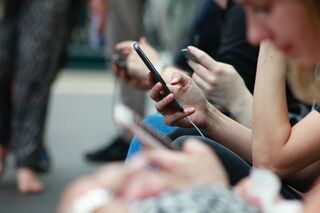Media
When Social Media Accelerates Conflict
A Personal Perspective: A recent tragedy in review.
Posted June 30, 2022 Reviewed by Kaja Perina
Key points
- Is social media simply a platform—a neutral medium for communication—or a publisher, responsible for what it propagates?
- Social media can allow mass murderers to virtually bring their "thought community" into their acts.
- Social media is an accelerant of organizing—for good or ill.
This is Part One of a two-part series.
The recent shootings in Buffalo, Uvalde and many other cities and towns across America have many wondering about the role of social media in our society. Is it simply a platform—a neutral medium for communication, nothing more—or a publisher, responsible for what it propagates?
While I don’t have the answer to this question, here’s what we know: social media has played a role in compounding a growing racial, cultural and gender divide in America and the world. In the US, most white Americans view Buffalo, point to the shooter and say, “This is not who we are.” Most African-Americans, on the other hand, view Buffalo, point to the systemic racism that enables these tragedies and think, “This is who we are.”

Where Can I Go?
Why? They simply do not feel protected. Going for a run, shopping, to church, Driving While Black or other daily activities no longer feel safe for the singular racial group brought involuntarily to the US. This was not MLK Jr.’s dream. This real-life nightmare is not what he, Malcolm X or so many other civil and human rights leaders died for.
One facet of the Buffalo shooting that is critical for understanding its conception and operation is that while it was the doing of one person, the shooter brought his thought community with him via live stream. They were poised and ready to send out the horrific imagery of innocent people being slaughtered before the social media site, Twitch, could take it down. The real-time video was removed within approximately two minutes, but the nature of the internet is such that the video was not and will never be inaccessible; many watched this tragedy later, on video that still exists online.
With his thought community virtually present and at the ready, the shooter felt less alone and propped up by the hate-imbued ideology of his group. Herein lies an important point for lawmakers to consider about the role of social media in this tragedy: it facilitated rapid, collective action by a hate group.
Certainly, there are many other factors that contribute to the enabling of hate crimes, such as bigotry, alienation, the need to belong to a greater cause, even with distorted objectives, and, ultimately, an inner pain one is unable to address and instead attempts to escape from through anger toward an often contrived outgroup.
Freedom of speech must be protected, but freedom of organizing—when it involves murdering innocent human beings—must never be allowed.
Terrorists have always used the same go-to strategy—shock the masses through the orchestration of unpredictable, violent events. This strategy enables a small group of people to become noticed and accorded the attention they seek.
What About Previous Technologies?

“Couldn’t you raise the same argument against other technologies, such as the telephone,” you may be thinking. You are right that detractors of the telephone honed in on the same issue. Some claimed the heightened familiarity with distant others spawned by the telephone promoted incivility and threatened neighborhood solidarity.
They were concerned that the telephone would portend a “general withdrawal into self-pursuit and privatism” and the “destruction of community because they encourage far-flung operations and far-flung relationships.” Others feared that thieves could plan their crimes discreetly without the risk of having to meet in person.
That did not come to pass. The future of social media remains in our hands.




